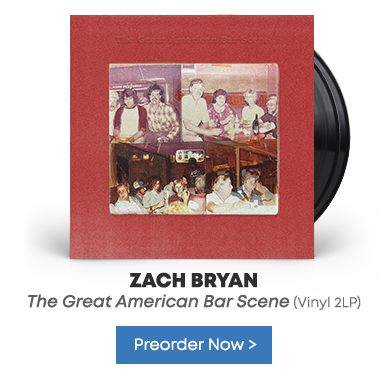This week brings us the release of a live album that documents a particularly fertile moment for one of America's greatest songwriters. Jason Isbell, the roots-focused artist who first came up with the Drive-By Truckers, has been on an artistic roll, having recorded three consecutive critically acclaimed studio albums with his current band, the 400 Unit. Beginning with 2013's Southeastern and continuing through 2015's Something More Than Free and last year's The Nashville Sound, his works marry the personal – Isbell's struggles with sobriety, his marriage to fellow musician Amanda Shires – with the political, as he looks at a divisive America and isn't afraid to say the uncomfortable. Live from the Ryman features 13 songs culled from the aforementioned albums. To celebrate its release, we take a quick snapshot of what makes Isbell such a special writer via four songs from his headline albums (three of which can be found on Live from the Ryman) and one from his Drive-By Truckers days.
"Elephant"
Isbell's 2013 solo effort Southeastern teems with songs that feature a clear, powerful, and sometimes stressful view of real life. Recorded after a stint in rehab, it's no wonder the album's views are often sobering, especially on a song like "Elephant." The quiet, patient acoustic number plays up contrasts, with the narrator recounting nights at the bar with a female friend. There's laughter, but only because they never talk about the so-called elephant in the room – the fact she's dying of cancer. "We just drink our drinks and laugh out loud," Isbell sings of the pair trying to carry on as if nothing is different. But plenty has changed. His friend no longer jokes about cancer and is dying alone, with the narrator taking her home in a drunken stupor only to sweep up the hair she's losing. It's heartbreaking, but not just because of the subject matter. Isbell notes everyone alive will somehow be touched by cancer, and we'll all likely try to avoid discussing it.
"If We Were Vampires"
"If We Were Vampires" won the 2018 Grammy Award for American roots song. While restrained, the intimate acoustic recording takes an honest look at marriage and, in turn, argues against some long-held clichés. Isbell resists the simple romanticism of wanting to live forever with a partner, and instead makes the case that eternal life would put a stake right through love's heart. "I wouldn't feel the need to hold your hand," Isbell sings, with wife Shires shadowing him. What makes a relationship sacred, Isbell suggests, is the knowledge it's not forever – and that it simply can't be forever. The singer's passion is instead fueled by the understanding "likely one of us will have to spend some days alone."
"White Man's World"
Found on The Nashville Sound, Isbell on "White Man's World" examines the opportunities and privileges afforded him due to the color of his skin and gender. He acknowledges two factors out of his control gave him a significant head start. The song functions as a call to action, but a nuanced one, as he gives it a lived-in bluesy feel accentuated by a sparse fiddle and subtle male/female harmonies. Rather than rant, or revel in guilt, Isbell zeroes in on small moments. And while the Alabama native acknowledges past mistakes, the song makes it clear it's never too late to change. As Isbell sings near the end, "I'm a white man looking in a black man's eyes/Wishing I'd never been one of the guys/Who pretended not to hear another white man's joke."
"Outfit"
One of Isbell's more famous songs from his tenure with the Drive-By Truckers, "Outfit" mixes nostalgic warmth with aching regrets. Taken as a whole, however, it's a rather loving song about fatherly advice, family relations, and the long struggle to create a better future for ensuing generations. Found on 2003's Decoration Day, the work relies on minor changes to indicate the shifts from verse to chorus – fitting, as the narrator of the tune never had time to catch a breath. "You don't want to feel old after 42 years," Isbell sings in the melancholic first verse. We hear snapshots of a man's life – rowdy nights in the backseat of a sports car, days spent painting the houses of rich people – but it's the no-nonsense advice from father to son that sticks: Don't forget your roots, stay off drugs, and don't ever forget to "call home on your sister's birthday."
"If It Takes a Lifetime"
The opening cut of Isbell's Something More Than Free conveys a lighthearted, almost jaunty vibe. But the portrait of a lonely man wasting life by living paycheck to paycheck contrasts such merriment with a few heartbreaking lyrics and sharp details – such as the narrator's observation that not keeping booze in the house helps his alcoholism, or that he spends nights having to "fight the urge to live inside my telephone." In particular, the latter phrase resonates, given it captures the modern-day affliction of feeling more connected than ever to others via a smartphone but actually having few meaningful connections. "If It Takes a Lifetime" isn't simply a somber character sketch, however. Isbell's narrator possesses optimism, and the cheery tone of the arrangement is intentional. "Our day will come, if it takes a lifetime," Isbell sings, confident in the belief better days lie ahead.
Photo credit: Erika Goldring
19th Oct 2018




































